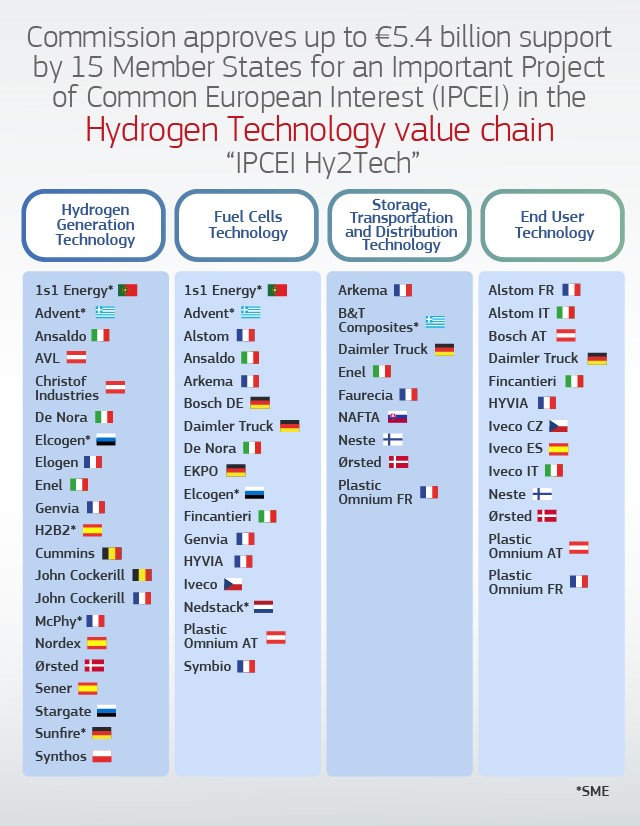Commission Approves State Aid for IPCEI in Hydrogen
On 15 July 2022, the European Commission (Commission) approved, under state aid rules, the Hy2Tech “Hydrogen” project, as an Important Project of Common European Interest (IPCEI) to support research, innovation, and the first industrial deployment in the hydrogen technology value chain. The project is an initiative set and notified by 15 EU member states: Austria, Belgium, Czech Republic, Denmark, Estonia, Finland, France, Germany, Greece, Italy, the Netherlands, Poland, Portugal, Slovakia, and Spain.
This approval is part of the efforts to support the development of an innovative and sustainable European hydrogen industry. In this context, the Commission authorized member states to grant up to €5.4 billion in public funding, aiming to unlock an additional €8.8 billion in private investments.
IPCEI is a key strategic instrument with respect to the implementation of the EU Industrial Strategy that aims to link knowledge, expertise, financial resources, and market players to overcome market or systemic failures. These are large-scale European consortia in key strategic value chains featuring tightly connected company projects.
This decision is the first IPCEI project approved based on the 2021 State Aid IPCEI Communication, setting out criteria pursuant to which member states can support transnational projects of strategic significance, under Article 107(3)(b) of the Treaty on the Functioning of the European Union.
The IPCEI Hy2Tech includes 41 projects and 35 companies, as seen in the graphic below, covering different stages of the hydrogen value chain such as: (a) the generation of hydrogen; (b) fuel cells; (c) storage, transportation, and distribution of hydrogen; and (d) end-users applications, in particular in the mobility sector.
Furthermore, the Hy2Tech project is expected to create 20,000 direct jobs and contribute to the development of technological breakthroughs, such as new highly efficient electrode materials, higher-performing fuel cells, and innovative transport technologies.
The amount of aid to be granted to the individual participants will be available in the public version of the Commission’s decision.
 1
1
This publication/newsletter is for informational purposes and does not contain or convey legal advice. The information herein should not be used or relied upon in regard to any particular facts or circumstances without first consulting a lawyer. Any views expressed herein are those of the author(s) and not necessarily those of the law firm's clients.






